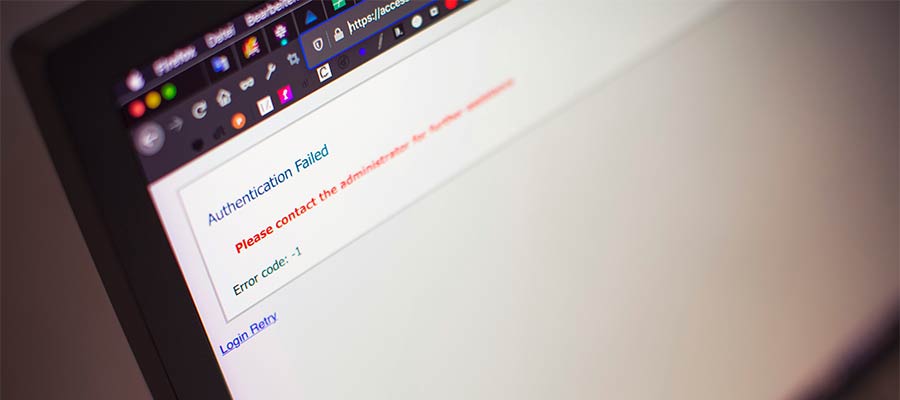A great web host is a web designer’s best friend. The better the host, the easier your life will be. And trust us. Previous bad experiences can give you a greater appreciation of what you have.
But bad things can still happen. Your website might face downtime or security issues. And technical support may not be able to fix every problem. That’s OK – nobody’s perfect.
Still, we place a lot of trust in web hosts. We trust that they have our best interests in mind. And that they have fool-proof processes in place.
That could be a mistake. Assuming that everything will be perfect can bite you. It’s then that you realize you could have done more.
Here’s a look at areas where it pays to be proactive. It could save you from a disaster.
Keep Website Backups on Hand
Any web host worth their salt should back up their servers. Some providers also offer on-demand site backups via a control panel.
It’s worth taking advantage of these services. But what if something goes wrong? What if a server outage renders your backup unreachable?
Having redundant copies of your website provides peace of mind. And it enables you to move quickly in case the worst happens.
There are several ways to accomplish this. Remote backup services will store your site in the cloud. Or you could use a WordPress backup plugin that ties in with a cloud service.
How often should you run a backup? Much depends on your website. A busy eCommerce site will need more frequent backups. However, an old-school brochure site could get by with daily or weekly snapshots.
Remember to back up the entire website. That includes files and databases. It’s helpful when you only need to restore a specific component.

Stay On Top of Your Website’s Security
Web hosts work hard to keep their servers secure. It’s a non-stop pursuit that requires investment. There’s no guarantee of perfection, however.
Every website is a target. Malicious actors will use every trick in the book to get inside a system. And they’ll wreak as much havoc as possible.
Your host will try to secure things at the server level. However, you should also fortify your website. You’ll have a better chance of avoiding a malware infection.
Again, there are several avenues to take. Installing a security plugin is a step in the right direction. And keeping your content management system (CMS) updated is another. Use strong passwords and implement two-factor authorization (2FA) when possible.
Those are the basics of website security. You can go further, though. A content delivery network (CDN) with a Web Application Firewall (WAF) blocks suspicious traffic before it reaches your site.
The bottom line: don’t take security for granted. Be proactive and make your website as secure as possible.

Optimize Your Website for Performance
Websites tend to get dragged down by bloat. Things like database calls and JavaScript libraries impact performance. Calls to third-party APIs can also kill performance. Web hosts can only do so much in this area.
The cost of your hosting plays a role. Cheap hosting will have more limitations. You’ll have access to fewer CPU cycles and less memory.
But even expensive plans can’t save a poorly built site. Features like object caching and CDNs can help. Still, resource-intensive pages will be slow to load.
A solid hosting platform and an optimized website are the ideal combination. Following best practices is still important. Doing so will allow your site to take advantage of that extra horsepower.
As such, take time to test your site’s performance. Use the information to make things as lean as possible.

Troubleshoot Website Issues Before Contacting Support
The odds are that your website will experience issues. It happens to all of us at some point.
Your first instinct may be to contact your host’s support. But it may be worth waiting in a non-emergency situation. Hastily sending an email stating that “It’s broken” won’t help.
Try to understand the problem first. Spend a few minutes troubleshooting the issue on your own. Look at your browser’s developer tools. Peruse the server’s error logs.
You might find the root cause and be able to fix the issue. That could save you from contacting technical support. And it will save everyone’s time.
If you’re still experiencing issues, then it’s OK to contact support. You can share what you found during troubleshooting. It may help them diagnose and repair the problem.
It’s worth remembering that support representatives work with a lot of people. Each has a different website configuration. And they may not instantly recognize the source of a problem. Give them as much good information as you can. That will speed up the process.

Treat Your Web Host Like a Partner
Your web host can make a difference in your site’s health. But they can’t do everything for you. Therefore, it pays to be an active participant in each item above.
Take the initiative to create backups, improve security, and optimize performance. Troubleshoot any issues before contacting support. Always take the most proactive path.
Web designers often know their sites better than anyone. That knowledge will come in handy when working with a host.
This partnership will help you get the most out of your website. That benefits everyone involved.
